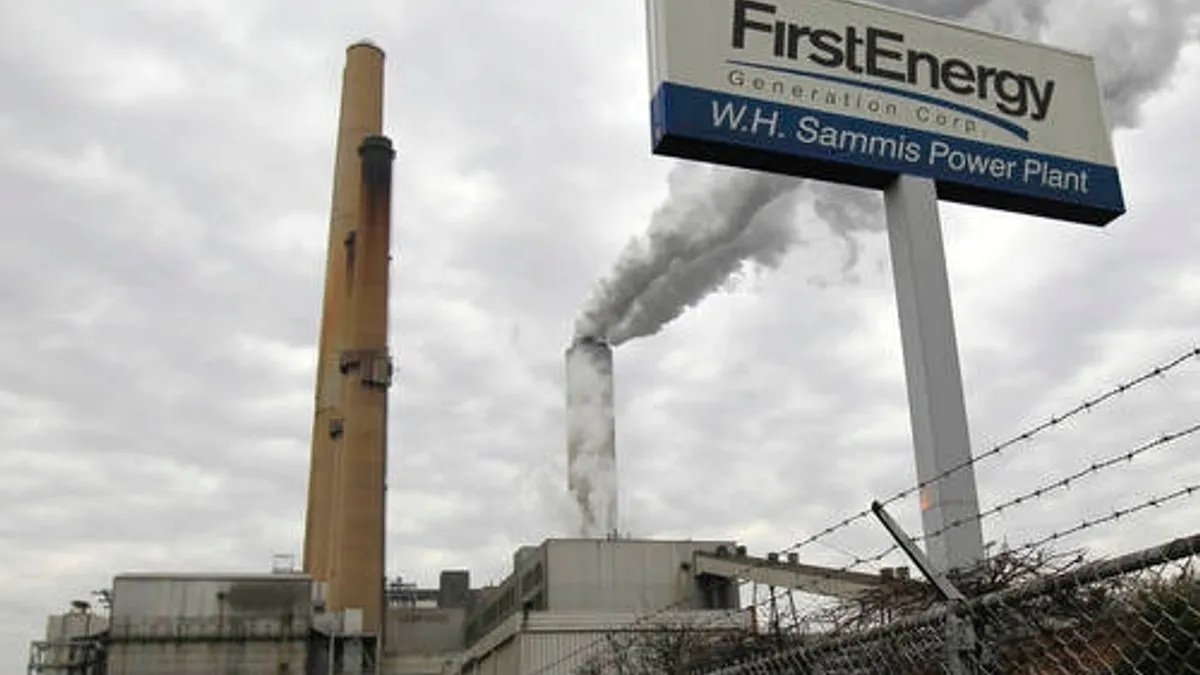Dive Brief:
- PJM Interconnection has completed a 30-day reliability study of FirstEnergy Solutions' (FES) proposed coal and diesel plant retirements, concluding the shutdowns can proceed without impacting the grid's reliability.
- FES wants to mothball four fossil fuel plants in Pennsylvania and Ohio in 2021 and 2022, amounting to 4 GW of coal capacity. Earlier this year, the grid operator concluded FES could shut down three nuclear plants without threatening reliability.
- Because the deactivations are planned several years into the future, PJM said it would have time to make system upgrades to account for any impact. The operator also said it is working on a study of extended outages associated with potential fuel disruptions, and would incorporate into that analysis FES' new closures.
Dive Insight:
While the loss of 4 GW is significant, PJM's grid serves 65 million customers across more than a dozen states, and the long lead-time of the shutdowns means plenty of opportunities to address discrete issues. But PJM is also examining the potential for long-term impacts, and said it would consider the coal and diesel shutdowns in the context of that report as well.
PJM is focused on the long-term resilience of the grid, and is "analyzing the grid's ability to manage extended outages associated with potential fuel disruptions and to establish, to the extent necessary, criteria by which the value of fuel security can be incorporated into the PJM markets."
FES' new retirements will be incorporated into the review, which PJM said should be complete in the "next few months."
"The PJM system has adequate power supplies and healthy reserves in operation today, and resources are more diverse than they have ever been," the operator said.
FES' proposed closures now exceed 8 GW and a half dozen plants. There has been an outbreak of operators shutting down nuclear, coal and even inefficient gas units which are struggling to compete in wholesale markets. Some plant owners have asked the federal government to step in.
FES has requested the Department of Energy issue an emergency order to keep its plants open. And earlier this year, President Trump directed Secretary of Energy Rick Perry to "prepare immediate steps" to keep coal and nuclear plants from closing down.
But across the nation, it is not clear to what extent these older resources are necessary for a reliable grid.
This summer, Talen Energy's Colstrip coal generating facility in Montana shut down for more than a month due to difficulties meeting emissions standards. Colstrip is one of the largest coal plants in the country, but the outage went largely unnoticed.















